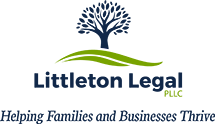Divorce is rarely simple. When two people’s lives are intertwined—physically, emotionally, and legally—separating the individual…

Important Considerations for Purchasing a Business
Many people who want to be a business owner build a company from scratch. However, if you want to be an entrepreneur but don’t love the idea of the start-up struggle, you may prefer to buy an existing business. Before purchasing a business, there are several vital questions to consider.
- Do you want to purchase an independent business or a franchise? Each option presents its own unique set of circumstances. With franchises, you are part of a systematic network built around an established brand name and often turn-key processes to run your business. However, as a franchisee, you will pay royalty fees for the brand recognition and convenience, and there will likely also be stringent requirements regarding the systems and procedures you must follow. If you opt to purchase an independent business, you may enjoy the benefit of increased flexibility but you’ll inherit whatever gaps in processes existed in the original business and it’ll take more may of your own more research and business development to grow.
- Does this business suit your lifestyle? Many new business owners wanted to transition from employee to owner because they desired flexibility. We often hear from our business owner clients that they underestimated how much effort they’d need to put in – your personal life and professional life tend to blur. Different businesses may require different types of lifestyles. If you choose to purchase a restaurant, you may need to be there evenings, weekends, and holidays – which may or may not work for your family. Other industries and businesses call for frequent travel. As an owner, you must understand what you value and what you can handle. Business ownership is rewarding, but you should be realistic about the sacrifices you are willing and able to make.
- Have you done your due diligence? It is extremely important that you conduct proper and thorough due diligence when purchasing an existing business. This process requires digging deep into the business records to fully understand the business’s history and more accurately predict its future performance. When conducting due diligence, it is important to hire an experienced business lawyer to ensure that a full examination occurs. This search should also include any information about the company’s past, ongoing, or anticipated litigation. Your due diligence search will likely include an in-depth analysis of the cash statements, profit and loss documentation, and any outstanding debt so we recommend involving your accountant or CPA early on as well.
- How will you structure the purchase? When you are purchasing a business, you can do it in one of two ways: (1) buy the membership interest/stock of the company; or (2) buy the tangible and intangible assets of the business. There are legal and tax implications to both options, so it is important to talk with an attorney and CPA about what is in your best interest. You can also buy part of a business or all of a business. If you’re going to have a partner, you’ll want to discuss the terms of the partnership agreement and what happens if you disagree or one of you wants or needs out of the business. You’ll need to decide if you’re going to pay for the business from your personal savings, through traditional financing with a bank, or through owner-financing. You’ll also want to establish expectations of the previous owner – will he or she be involved on an ongoing basis or during a transition period? Will they be restricted from competing with you in the future?
- Is there additional information available through the personnel? As part of your investigation and research into the business, it is important to spend time speaking to and understanding the people involved. These people include but are not limited to the current owner, employees, and customers. When speaking to the owner, seek to gain an understanding regarding the owner’s motivation for selling, as well as any challenges and successes as the owner. In addition to speaking with the owner, it is critical to speak with employees. As you acquire a business, you also inherit the existing workforce, and their attitudes towards their work and their experience in the company may provide valuable information.
- Are you truly ready? Although you may avoid some of the challenges involved in starting a new business, purchasing an existing business is still plenty of hard work. In many instances, it requires upfront costs that exceed those of brand-new businesses. It can also be a tedious process because some companies have hidden risks that remain latent until the due-diligence stage. Additionally, you must remember that funding the enterprise is still required.
We are here to help. Whether you choose to purchase an existing business or start your own, Littleton Legal is here to help you evaluate your options and make the choice that is best for you. We also provide a wide range of services to help you protect your investment of time, money, and energy. Call our office today (918) 608-1836 to schedule an appointment.



